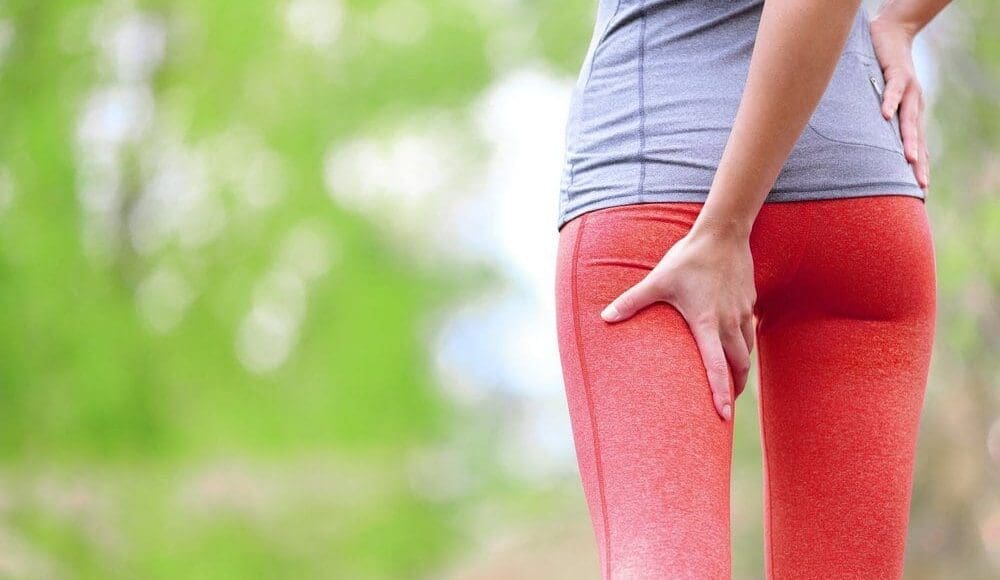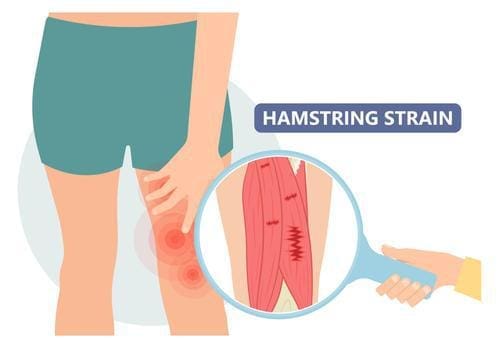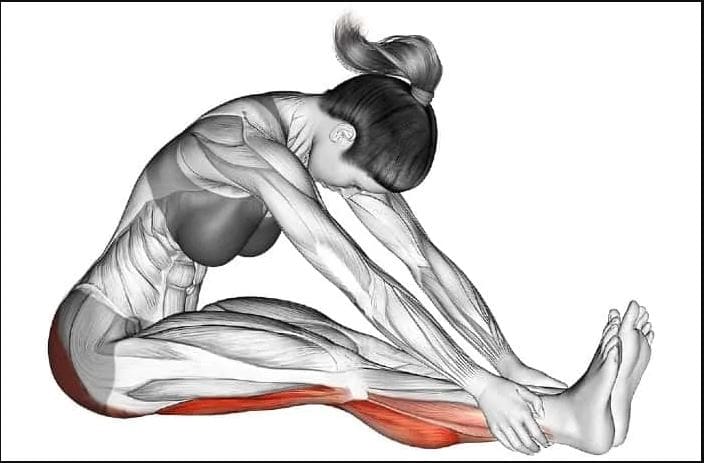Table of Contents
Introduction
With the body being a complex machine with various muscle groups and sections that work to keep the body mobile, it is important to know that weak muscles in the upper and lower portions of the body can cause unwanted pain-like symptoms that can lead to dysfunction over time. When numerous environmental factors and habits affect the muscle groups, it can lead to overlapping risk factors that cause tightness in the affected muscles and lead to injuries. In the lower portions of the body, the hips, thighs, hamstrings, and glute muscles help stabilize the pelvis region. When these factors start to cause issues with these muscles, it can lead to injuries and problems for those muscle groups. Today’s article will examine how hamstring injuries occur, how it affects the lower body, and how treatments and techniques like MET (muscle energy techniques) are utilized to relieve hamstring injuries. We mention valuable information about our patients to certified medical providers who provide therapy techniques like the MET and care treatment for individuals with hamstring injuries associated with the lower body portions. We give encouragement to patients by referring them to our associated medical providers based on their diagnostic findings. We provide the support that education is a spectacular way when asking our providers the most helpful questions at the patient’s acknowledgment. Dr. Alex Jimenez, D.C., utilizes this information as an educational service. Disclaimer
How Do Hamstring Injuries Occur?
Have you noticed that your hamstrings are feeling tight? Are you constantly sitting down for an extended period? Or are you experiencing low back pain that is affecting your hamstrings? Many individuals will usually experience low back pain along the thigh with associated symptoms of muscle weakness that causes the muscle fibers to be tighter and sore. When the muscle fibers are tight consistently, it causes the back of the leg muscles uncomfortable and can make movement difficult. Studies reveal that the back of the leg muscles or hamstrings is highly susceptible to injuries, especially in athletes. The hamstring muscles comprise three major muscles in the posterior location of the thigh. When a person is overstretching the hamstrings or having muscle tightness from being sedentary can cause these injuries and discomfort to the lower extremities. Additional research studies mentioned that hamstring injuries could range from acute muscle strain to chronic proximal hamstring tendinopathy associated with muscle ruptures.
How Does It Affect The Lower Body?
Since the hamstring muscles succumb to injuries from overstretching or becoming weak, how would it affect the lower body and cause mobility issues? Well, when the hip flexors or the hamstrings become tight and tense, it can cause an altercation to the pelvis region and cause spinal misalignment. To that point, it can lead to muscle stiffness and pain in the hamstrings while correlating to low back pain and can cause the individual to be confused as they think it is sciatica instead of a hamstring injury. Studies reveal in “Clinical Applications of Neuromuscular Techniques,” written by Leon Chaitow, N.D., D.O., and Judith Walker DeLany, L.M.T., states that when there is a range of other biomechanical features that could be predisposed to hamstring injuries that can cause a chain of reactions that can involve not only the hamstrings but the toes, the spine, the trunk, and the upper extremities. Losing the ability to function in the lower extremities can cause dysfunction, muscle weakness, and instability in an individual.
Natural Healing: Chiropractic Care for Injury Recovery- Video
Have you been experiencing stiffness or pain in your hamstrings? What about feeling discomfort in one side of your hips and glutes? Or are you experiencing muscle strain? Many of these issues are correlated with hamstring injuries that can cause muscle weakness and instability in the body. Fortunately, when dealing with a hamstring injury, techniques like gentle stretching and warming up the muscles allow the injury to recover and bring relief. Another way a person can get pain relief from a hamstring injury is through chiropractic care. Chiropractic care can help relieve the problem without using medications, injections, or surgery through spinal manipulation and incorporating various techniques to stretch the stiff muscles and realign the body. The video above explains how chiropractic care is utilized for injury recovery.
Treatments For Hamstring Injuries
When dealing with hamstring injuries, it is important to rest to prevent future injuries from occurring and incorporate gentle stretches of the targeted muscles to avoid cramping and pain. If gentle stretching doesn’t bring relief, then it is recommended to have a personalized treatment and program with a chiropractor. A chiropractor uses hands-on therapy to loosen and relieve tense muscles, thus reinforcing flexibility and range of motion back to the hamstrings. Chiropractic care also incorporates stretching techniques like MET to improve hamstring flexibility. Studies reveal that the MET technique uses soft tissue mobilization to increase the hamstring’s ROM (range of motion) while bringing mobility back to the hips and reducing pain. Furthermore, these stretches and treatments can help decrease instability and allow the individual to be pain-free.
Conclusion
The hamstrings are located along the back of the thigh and just below the knees, as they can succumb to injuries due to overstretching or other factors that cause symptoms of pain and weakness. Hamstring injuries are common and can range from acute to chronic, depending on the injury. Many people with hamstring injuries often deal with overlapping issues of sciatica and low back pain that can lead to instability in the lower body. Luckily, different treatments and stretching techniques can help lengthen the hamstring muscles, promote flexibility back to the hamstrings, and cause relief to the affected muscle.
References
Chaitow, Leon, and Judith Walker DeLany. Clinical Application of Neuromuscular Techniques. Churchill Livingstone, 2002.
Chu, Samuel K, and Monica E Rho. “Hamstring Injuries in the Athlete: Diagnosis, Treatment, and Return to Play.” Current Sports Medicine Reports, U.S. National Library of Medicine, 2016, https://www.ncbi.nlm.nih.gov/pmc/articles/PMC5003616/.
Gunn, Leanna J, et al. “Instrument-Assisted Soft Tissue Mobilization and Proprioceptive Neuromuscular Facilitation Techniques Improve Hamstring Flexibility Better than Static Stretching Alone: A Randomized Clinical Trial.” The Journal of Manual & Manipulative Therapy, U.S. National Library of Medicine, Feb. 2019, https://www.ncbi.nlm.nih.gov/pmc/articles/PMC6338275/.
Poudel, Bikash, and Shivlal Pandey. “Hamstring Injury – Statpearls – NCBI Bookshelf.” In: StatPearls [Internet]. Treasure Island (FL), StatPearls Publishing, 28 Aug. 2022, https://www.ncbi.nlm.nih.gov/books/NBK558936/.
Disclaimer
Post Disclaimer
Professional Scope of Practice *
The information on this blog site is not intended to replace a one-on-one relationship with a qualified healthcare professional or licensed physician and is not medical advice. We encourage you to make healthcare decisions based on your research and partnership with a qualified healthcare professional.
Blog Information & Scope Discussions
Welcome to El Paso's Premier Wellness and Injury Care Clinic & Wellness Blog, where Dr. Alex Jimenez, DC, FNP-C, a board-certified Family Practice Nurse Practitioner (FNP-BC) and Chiropractor (DC), presents insights on how our team is dedicated to holistic healing and personalized care. Our practice aligns with evidence-based treatment protocols inspired by integrative medicine principles, similar to those found on this site and our family practice-based chiromed.com site, focusing on restoring health naturally for patients of all ages.
Our areas of chiropractic practice include Wellness & Nutrition, Chronic Pain, Personal Injury, Auto Accident Care, Work Injuries, Back Injury, Low Back Pain, Neck Pain, Migraine Headaches, Sports Injuries, Severe Sciatica, Scoliosis, Complex Herniated Discs, Fibromyalgia, Chronic Pain, Complex Injuries, Stress Management, Functional Medicine Treatments, and in-scope care protocols.
Our information scope is limited to chiropractic, musculoskeletal, physical medicine, wellness, contributing etiological viscerosomatic disturbances within clinical presentations, associated somato-visceral reflex clinical dynamics, subluxation complexes, sensitive health issues, and functional medicine articles, topics, and discussions.
We provide and present clinical collaboration with specialists from various disciplines. Each specialist is governed by their professional scope of practice and their jurisdiction of licensure. We use functional health & wellness protocols to treat and support care for the injuries or disorders of the musculoskeletal system.
Our videos, posts, topics, subjects, and insights cover clinical matters and issues that relate to and directly or indirectly support our clinical scope of practice.*
Our office has made a reasonable effort to provide supportive citations and has identified relevant research studies that support our posts. We provide copies of supporting research studies available to regulatory boards and the public upon request.
We understand that we cover matters that require an additional explanation of how they may assist in a particular care plan or treatment protocol; therefore, to discuss the subject matter above further, please feel free to ask Dr. Alex Jimenez, DC, APRN, FNP-BC, or contact us at 915-850-0900.
We are here to help you and your family.
Blessings
Dr. Alex Jimenez DC, MSACP, APRN, FNP-BC*, CCST, IFMCP, CFMP, ATN
email: coach@elpasofunctionalmedicine.com
Licensed as a Doctor of Chiropractic (DC) in Texas & New Mexico*
Texas DC License # TX5807
New Mexico DC License # NM-DC2182
Licensed as a Registered Nurse (RN*) in Texas & Multistate
Texas RN License # 1191402
ANCC FNP-BC: Board Certified Nurse Practitioner*
Compact Status: Multi-State License: Authorized to Practice in 40 States*
Graduate with Honors: ICHS: MSN-FNP (Family Nurse Practitioner Program)
Degree Granted. Master's in Family Practice MSN Diploma (Cum Laude)
Dr. Alex Jimenez, DC, APRN, FNP-BC*, CFMP, IFMCP, ATN, CCST
My Digital Business Card




